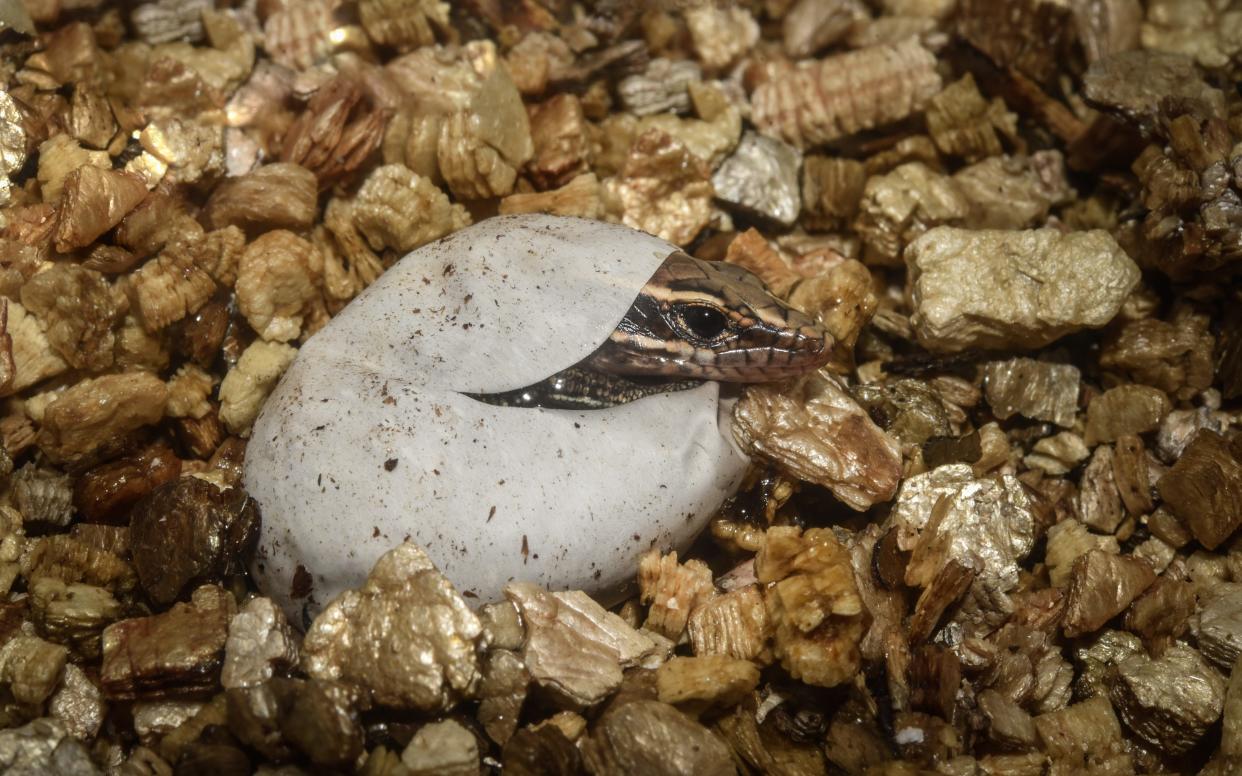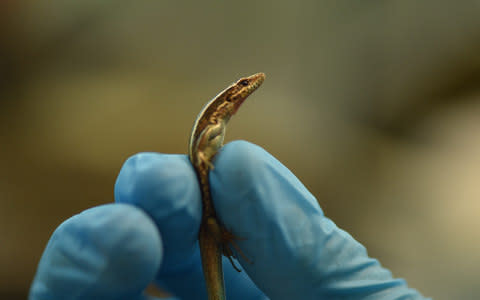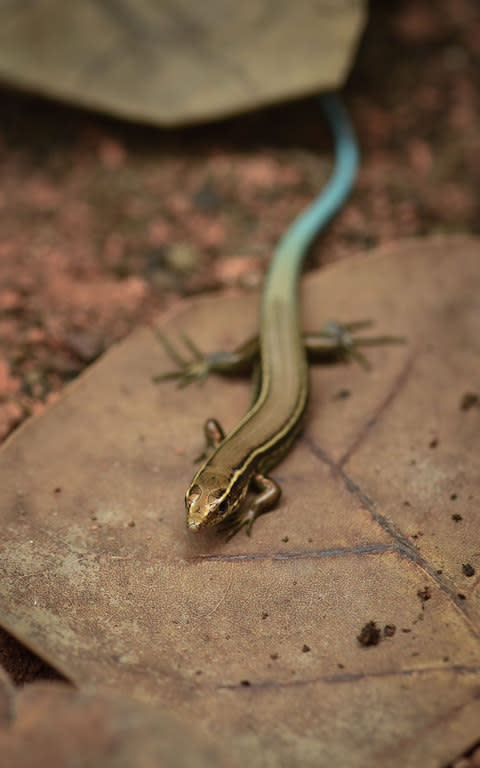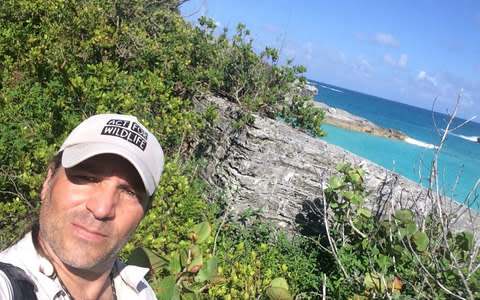World's first as endangered Bermudian Skink hatch at Chester Zoo

Two clutches of critically endangered Bermudian Skink have hatched at Chester Zoo, the first time conservationists have succeeded in breeding the species outside of its homeland.
The tiny rock lizards, which grow to around three inches long, are a much-loved symbol of the British Overseas Territory of Bermuda and an important part of the ecosystem.
Yet the species is on the brink of extinction in the wild, as habitat destruction and introduced predators have almost wiped them out.
In a last gasp attempt to prevent the species being lost forever, the Bermudian government called on experts at Chester Zoo to help breed the species in Britain.

Now, after three years of work by conservationists and 43 days of incubation, seven skinks have hatched, a major milestone in the fight to save the animal from extinction.
Dr Gerardo Garcia, Curator of Lower Vertebrates and Invertebrates at Chester Zoo, said he jumped for joy when the first lizard hatched.
"Receiving a few skinks from a population that was estimated to be just 1,500 individuals is an enormous responsibility that you take very serious.
"Conservation is critical and breeding these skinks is a momentous event.
“Not only is it providing us with vital new data which will help to inform future decisions in terms of protecting the species, it will engage future generations with these fascinating animals too.
“It has taken years of work, both out in Bermuda and here in our zoo breeding facilities, but to finally hatch these clutches of Bermudian skinks is magnificent news.”

The conservation programme was tricky because nobody had attempted to breed the skinks before so there were no guidelines on even how to identify males from females. Their mating behaviour can also be violent, leading to some animals losing their toes from bites.
"When we put them on pairs for breeding this season we immediately found elements of fight between them and that could be the normal male/female interaction or something more serious if we selected two males," added Dr Garcia.
"So that was very stressful finding a balance between leave the nature going and be very intrusive with the manipulation of individuals."
The team spent many hours carefully observing the lizards and created a special home which mirrored hot, humid environment of the Bermuda shoreline where the skinks live in the wild.
Females are choosy about where they lay their eggs and so the team had to set up the breeding area to give them various options where they could lay.
The moment the first skink popped its head out of its egg was captured on camera by the zoo’s reptile experts. Baby skinks have bright blue tails, which they use to confuse predators, who bite the tail instead of their head. The skink then escapes and grows a new tail.

The team are hoping that the lizards will be reintroduced to the wild in Bermuda, whilst the zoo’s experts will also travel to the island to set up in-country breeding facilities.
Mike Jordan, Collections Director at Chester Zoo, said: “We are working hard to prevent the extinction of this unique species, found nowhere else but Bermuda – and with so few endemic vertebrates – they are incredibly important to the country.
“This breeding breakthrough, in tandem with our extensive work out in the field alongside the Bermudian government, is a hugely significant boost for their long term survival hopes.”

Dr Mark Outerbridge, Wildlife Ecologist for the Bermuda Government and the zoo’s partner in Bermuda, added:“I was thrilled to hear of the recent breeding success at Chester Zoo.
“Skinks have been living on Bermuda for over 400,000 years and I believe we need to do all that we can to ensure their continued survival.
“The captive breeding is a critical step in this process and I am very grateful to all the staff there.”

